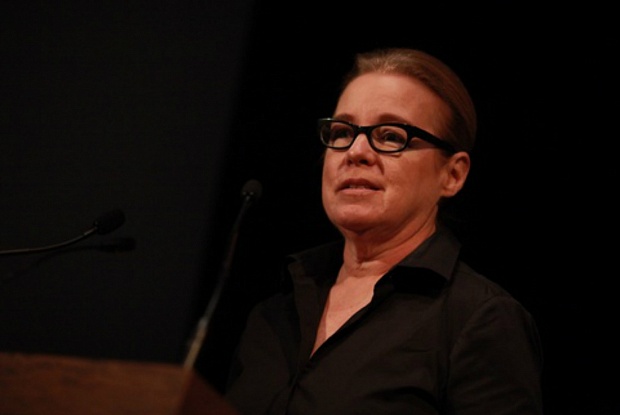
Artist Joan Banach lost her long, contentious legal battle with her former employer, Robert Motherwell’s Dedalus Foundation. On December 13, New York State Supreme Court Judge Geoffrey D. Wright dismissed her complaint.
The foundation will now bring its own case against Banach to trial. Wright granted summary judgment on the count of trespass to chattel, because Banach erased the hard drives of three computers lent to her for work purposes before returning them to Dedalus. The foundation believes the deleted data contained evidence that she had stolen artwork from them.
The case is a complex one, stemming back to August 2008, when Dedalus terminated Banach from her position as vice president and swiftly removed her from the foundation board. She had been Motherwell’s assistant for a decade prior to his death on July 16, 1991, and he had made arrangement for her employment to continue at the foundation following his death.
Things came to a head after Dedalus president Jack Flam discovered that Banach had been selling Motherwell artworks. The foundation believes these artworks are rightfully theirs, while Banach insists they were personal gifts from the artist.
Banach responded to her termination by suing the foundation on March 25, 2009. Dedalus had already filed a claim against her in federal court earlier that same day, demanding $5 million in damages and the return of all Motherwell artworks in Banach’s possession; the two cases were later joined in state court.
“We didn’t come in here as a defendant,” Dedalus’s lawyer, Perry M. Amsellem of New York’s Pryor Cashman LLP, told artnet News in a phone conversation. “We filed first as a plaintiff.”
In her complaint, which eventually included seven causes of action, Banach alleged that Flam had moved to fire her because she had questioned his judgment in connection to the artist’s catalogue raisonné. She claimed that Flam had incorrectly judged the authenticity of several works, including two Motherwells that she had consigned to Christie’s. When she pointed out his errors, Flam allegedly “embarked on a campaign to diminish [plaintiff’s] standing, discredit her reputation, vilify and defame her character, and remove her from [Dedalus].”
Banach also argued that as a provision of Motherwell’s will, she was entitled to lifetime employment. In a later, amended complaint, she says she had been discriminated against on the basis of her gender.
In May 2010, the New York State Supreme Court dismissed all but one of Banach’s claims with prejudice, based on documents presented by the foundation, noting that employment for life contracts are unenforceable. Banach’s discrimination complaint was the only claim still being reviewed at the time of Wright’s most recent ruling.
As evidence that there was no gender discrimination against Banach, the foundation pointed out that she was their third highest-paid employee, even though she lacked higher education beyond a high school degree. Banach claimed she was told to look into hormone replacement therapy to maintain her looks as she aged, and that Flam made unwelcome comments about “how sexy women looked in heels and jeans.”
Dedalus maintained that because it was Banach’s job to help record and inventory all of Motherwell’s works, she should have informed them of the many gifts the artist had given her.
“How bizarre would it be that after years of working on the catalog raisonné project and being our curator, she would present undocumented works, unknown to the catalog raisonné, unknown to the Dedalus Foundation and have them sold anonymously through her husband’s [Bill Maine] gallery, consigned to an auction house?” Amsellem asked. “Red flags all the way.”
In his ruling, Wright found that the “plaintiff has not provided any evidence that Flam’s purported negative reactions were targeted to her as a result of gender.” He continued, “It is not unreasonable that someone who is responsible for ensuring the accuracy and authenticity of Motherwell artwork and inventory would be terminated for not including her ownership of Motherwell artwork on that inventory.”
“There’s no evidence these were gifts,” Amsellem added. “When Robert Motherwell gave gifts away, they were documented, they had studio numbers, and she, Ms Banach, was the person recording the gifts.”
Banach was also in charge of overseeing the Sotheby’s appraisal of Motherwell’s estate after he died, and noted in her own board minutes that at the auction house had overlooked at least 100 works in the process. “It is Dedalus’s position that she came into possession of these works after he died, and that she has improperly obtained these works and has sold them without any authority, right, title, or interest, ” Amsellem said.
artnet News reached out to Banach and her lawyer, Jonathan Abady of New York firm Emery, Celli, Brinkerhoff & Abady, but did not receive an immediate response.